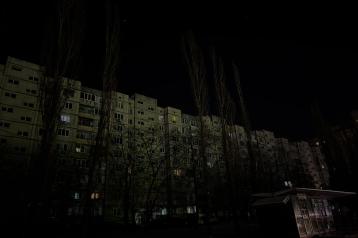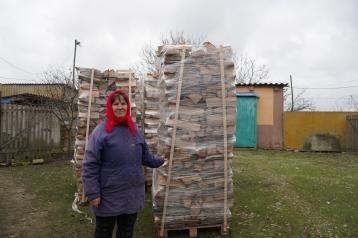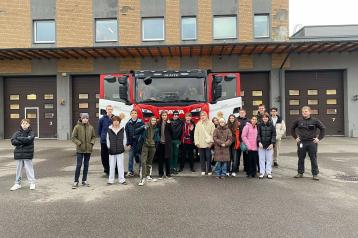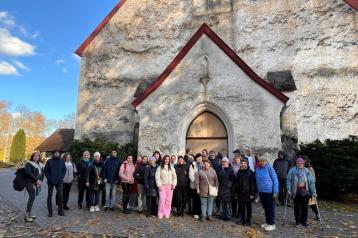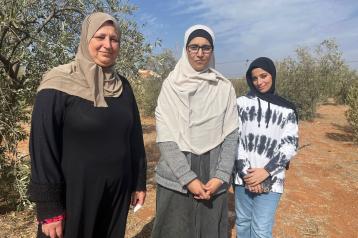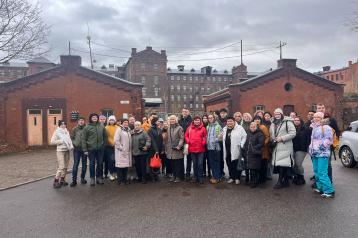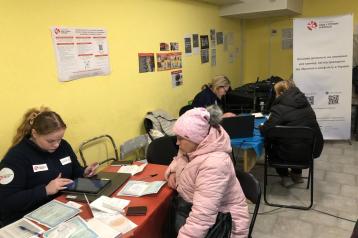Countries
The Estonian Refugee Council, Estonian Human Rights Centre and the Office of the Gender Equality and Equal Treatment Commissioner invite everyone to join discussions on racism in Estonia at this year’s Opinion Festival. The conversation "I’m not a racist, but… " – real stories from Estonia takes place on Friday, 8 August at 16:00 on the Security stage. On 9 August at 18:30 on the Foreign Policy stage, Estonian Refugee Council’s Director Eero Janson will take part in the panel More crises, less funding, which looks at how cuts to humanitarian aid and development cooperation budgets affect those in need.
According to Sigrid Solnik, Head of Estonian Programmes at the Estonian Refugee Council, racism is not always visible or understandable to an outsider — especially if that outsider is, for example, a white Estonian. "Unpleasant experiences caused by someone’s skin colour or background may seem small, but they are often repetitive and systemic, consuming a lot of mental energy. If refugees and people with a different background feel excluded because of these small yet accumulating instances of racism, we lose both their potential and our chance to build a stronger society," Solnik explained.
Equal Treatment Commissioner Christian Veske notes that many people in Estonia do not believe discrimination based on skin colour or origin is widespread. "But research carried out last year shows otherwise. At the Opinion Festival, we invite everyone to face that reality and discuss what we can do to ensure everyone in Estonia feels safe and welcome," Veske said.
Racism is rarely discussed in Estonian media and public debate. Even less familiar is the concept of structural racism – the idea that racism is not limited to direct insults, but can also show up in access to services, employment, or interactions with public authorities.
"Speaking honestly about racism is the first step towards finding solutions,” said Kelly Grossthal, Head of Diversity and Inclusion at the Estonian Human Rights Centre. "As work outside the home makes up a large and important part of people’s lives, we especially encourage employers to join the discussion. They are in a position to address these issues directly and stand up for human rights and equal treatment."
At "I’m not a racist, but…", a discussion inspired by real events in today’s Estonia, speakers Mare Heinluht (Bolt), Merle Ojasoo (Tallinn University of Technology), and Kristi Mäe (Police and Border Guard Board) will share their thoughts and experiences. The conversation will be moderated by Andrei Liimets.
The panel More crises, less funding on the Foreign Policy stage will feature, in addition to Eero Janson, Silja Kasmann (Deputy Head of Development Section, EU Delegation to Armenia) and Olga Sõtnik (Government Liaison Officer, UNHCR Estonia). The discussion will be led by Kairi Saar-Isop (Director General, Development Cooperation and Humanitarian Aid Department, Estonian Ministry of Foreign Affairs). The panel will focus on how growing global crises combined with shrinking budgets impact affected countries and Europe – who might fill the emerging funding gap in the fields of humanitarian aid and development cooperation, and what are the broader consequences?
